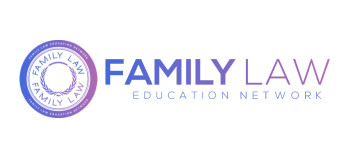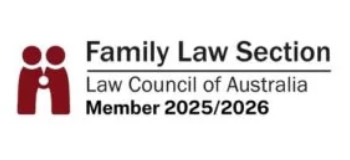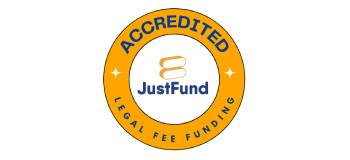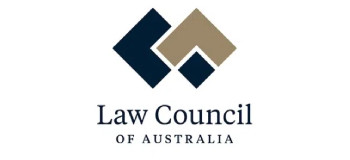Your Path to Fair Child Support With Trusted Child Support & Custody Lawyers in Brisbane
You’re Not Alone
Get Clarity, Relief, and Results from Child Support Lawyers Who Listen and Act Fast.
You’re Not the Only One Who’s Confused About Child Support, and That’s Okay
Child support in Australia is usually managed through Services Australia (Child Support), which also provides an online estimator to give you an idea of likely payments.
The formula doesn’t always capture every situation, especially for higher-income families, children with special needs, self-employed parents, or when one parent doesn’t meet their obligations. In these cases, the system can feel confusing and unfair.
At The Law People, we help with these more complex issues, including child support where one parent lives overseas. You will receive clear advice about your rights and obligations, and work with us to plan practical and fair arrangements that suit your family’s circumstances.
Many of our team are separated parents too, so we understand the human side as well as the legal. You don’t need to face it alone; The Law People are here to give you guidance and support.

Child Custody Lawyer vs Child Support Lawyer: What’s the Difference?
When you separate, there are usually two key things you need to consider relating to your children:
- Who the children live with and spend time with (commonly called custody), and
- How the children are financially supported (child support).
These issues are linked, but they’re not the same.
Child custody lawyers help with parenting matters. This includes working out where the children live, how often they see each parent, and who makes decisions for them. These plans can be written down in a parenting plan or made into a court order.
Child support lawyers help sort out the money side of things and how much each parent pays to help raise the children. This might be done through a CSA assessment or a Binding Child Support Agreement.

Here’s What Happens When You Contact Your Child Support Lawyers...
You’ll Talk With an Experienced Lawyer
No robots, no long delays - you’ll speak with a caring, understanding lawyer who listens.
You’ll Get Clear Answers About Your Rights
We’ll explain what’s possible and how the law applies to your specific case - in simple, plain English.
You’ll Feel Clear and Confident Moving Forward
Whether you engage us or not, you’ll leave the call with certainty and direction.

Your Case Deserves a Specialist, Not Just Any Lawyer
- Jill Johnstone, the Principal of The Law People is one of less than 3% of lawyers in Queensland who are Accredited Family Law Specialists.
- In 2023, two of our lawyers were named “Best Lawyers in Family Law” by peers, published in the Financial Review.
You’ll feel empowered, not just legally advised. Your case begins by understanding your ideal outcome. Then the work starts to achieve that in the quickest way possible.
You’ll be working with proven experts who understand not just the law but also the emotions of child support cases.
Trusted & Recognised Memberships, Associations and Affiliations






What Clients Say After Working With Us
Trustindex verifies that the original source of the review is Google. Very happy with the service, advice I received from Skye, Felicity and team. Very professional, and listened to my needs to provide good advice. Highly recommendTrustindex verifies that the original source of the review is Google. Jill and the team are professional, responsive and very knowledgeable. I have no reservations in recommending the law peopleTrustindex verifies that the original source of the review is Google. Jill Johnstone and The Law People team always provide exceptional service from start to finish which is why Rouse Lawyers confidently refers its clients who need expert and experienced family law solicitors to them. The Law People know how to guide clients through every step, making potentially stressful situations more manageable. Clients benefit from The Law People’s incredible knowledge and genuine care for client well-being.Trustindex verifies that the original source of the review is Google. Jill and the team are fantastic. I highly recommend them for any family law matters.Trustindex verifies that the original source of the review is Google. The staff at The Law People are total pros. They are friendly, supportive and above all they get results. Highly recommend, particularly if you are a woman who is nervous about being taken seriously.Trustindex verifies that the original source of the review is Google. Wonderful team to work with.Load more


Led by an Accredited Family Law Specialist
When everything feels uncertain, it helps to know you’re being guided by a team led by one of Queensland’s most qualified family lawyers.
Less than 3% of solicitors in Queensland hold the title of Accredited Specialist in Family Law. It’s not a marketing term – it’s formal recognition from the Queensland Law Society that Jill Johnstone, Principal of The Law People, is among the top-tier experts in the state.
For you, that means:
- Advice that’s precise, strategic and fully aligned with current legal standards
- Representation from someone trusted by peers, judges, and clients alike
- Fewer delays, fewer missteps, and a smoother path to resolution
In complex or high-stakes matters – especially involving children, property, or financial disputes – that level of expertise can make a real difference in your outcomes.
What truly sets this team apart is that legal skill never comes at the expense of personable service. You’ll feel it from the first conversation – real understanding, practical advice, and guidance that puts your best interests at the centre.
So if you’ve been searching for family law advice you can truly trust – you’ve just found it.
Understanding Child Support Without Legal Jargon
Child support, from a legal perspective, is about working out what amount is paid and by whom to meet the financial needs of the child or children.
That decision can be made privately or through the Services Australia (Child Support) – commonly known as the Child Support Agency (CSA).
If you don’t have a private Agreement (either a Limited or Binding Child Support Agreement), the CSA will decide the amount of child support.
The Law People can help you prepare a Limited or Binding Child Support Agreement if needed.
If there is no Limited or Binding Child Support Agreement in place, the CSA looks at several factors. These include each parent’s income, the ages of the children and how many nights the children spend with each parent.
If you or the other parent is self-employed, that assessment is not always an accurate or fair figure.
The Law People can review your or your former partner’s financial figures, write submissions asking the CSA to review their decision, or assist you with a private Agreement and bring a more accurate outcome for child support.

Commonly Asked Questions
Child support can be one of the most confusing and stressful parts of separation. The law aims to ensure children are properly provided for, but the system doesn’t always feel straightforward, especially if income varies, one parent is self-employed, or there are special circumstances like children with additional needs. Below we have answered some of the most common questions about child support in Australia. Please note this is general information only and not legal advice. For guidance tailored to your situation, contact The Law People to speak with an experienced family lawyer.
How is child support calculated in Australia?
Child support is calculated by Services Australia (Child Support) using a formula. The formula considers each parent’s income, the number and ages of children, and how much time the children spend with each parent. It aims to share the cost of raising children fairly between both parents.
What costs does child support cover?
Child support is designed to cover the day-to-day living costs of raising a child, things like food, clothing, housing, and utilities. It doesn’t always automatically cover things like private school fees, extracurricular activities, or medical costs, although these can sometimes be included through a private agreement.
Does child support cover school fees and extracurricular activities?
Not always. The standard formula does not specifically account for private school fees, sport, music, or other activities. However, parents can make a private child support agreement (either Limited or Binding) that sets out how these costs will be shared.
How do I apply for child support?
You can apply directly to Services Australia (Child Support) online, over the phone, or by post. They’ll assess your situation and calculate how much child support should be paid. Alternatively, you and the other parent can make a private agreement about payments.
The Sooner You Act, the Sooner You Get Peace of Mind
This whole process can feel a bit overwhelming – but once you’ve had that first conversation, things start to get clearer, fast. You’ll soon know where you stand.
Your Questions About Child Support – Answered
What happens if the other parent doesn’t pay child support?
Services Australia has powers to collect unpaid child support, including garnishing wages, intercepting tax refunds, or restricting overseas travel. If you have a private agreement and payments aren’t made, you may need to enforce the agreement through the court.
Can child support be changed if my income or circumstances change?
Yes. Child support assessments can be reviewed and varied if circumstances change, for example, if your income goes up or down, care arrangements change, or a child develops special needs.
How does child support work if one parent lives overseas?
Australia has agreements with many countries (called reciprocating jurisdictions) that allow child support to be enforced internationally. If one parent lives overseas, payments can still be collected, but the process can be more complex and slower.
Is child support separate from spousal maintenance?
Yes. Child support is about the financial support of children, while spousal maintenance is separate and deals with the financial support of a former partner. They are different legal obligations.
Can we make a private child support agreement instead of going through Services Australia?
Yes. Parents can enter into either a Limited Child Support Agreement (which is based on a Services Australia assessment but allows some flexibility) or a Binding Child Support Agreement (which can set payments at any level agreed, but requires both parents to obtain independent legal advice).
What’s the difference between a Limited Child Support Agreement and a Binding Child Support Agreement?
- Limited Agreement: Easier to set up, but can usually only last up to three years and must be based on a Services Australia assessment.
- Binding Agreement: More flexible and can last longer, but requires both parents to get legal advice and have a lawyer sign off on the agreement.
How long do I have to pay child support for?
Generally, child support is payable until a child turns 18. In some cases, payments may continue if the child is still finishing secondary school after turning 18.
Does child support automatically stop when my child turns 18?
No. If your child turns 18 while still in school, you can apply for child support to continue until the end of the school year. After that, support may stop unless an adult child maintenance order is made by the court (for example, if the child has a disability or ongoing special needs).
What if my income is irregular, or I’m self-employed?
If you’re self-employed or have fluctuating income, Services Australia may look at your tax returns, financial records, and actual earning capacity. In some cases, they can make an “income estimate” or use an “alternative assessment” if they believe your taxable income doesn’t reflect your true financial position.
Can child support be backdated?
Generally, child support starts from the date you apply. In some circumstances, private agreements can include backdated payments, but Services Australia will usually only assess payments from the time an application is lodged.
